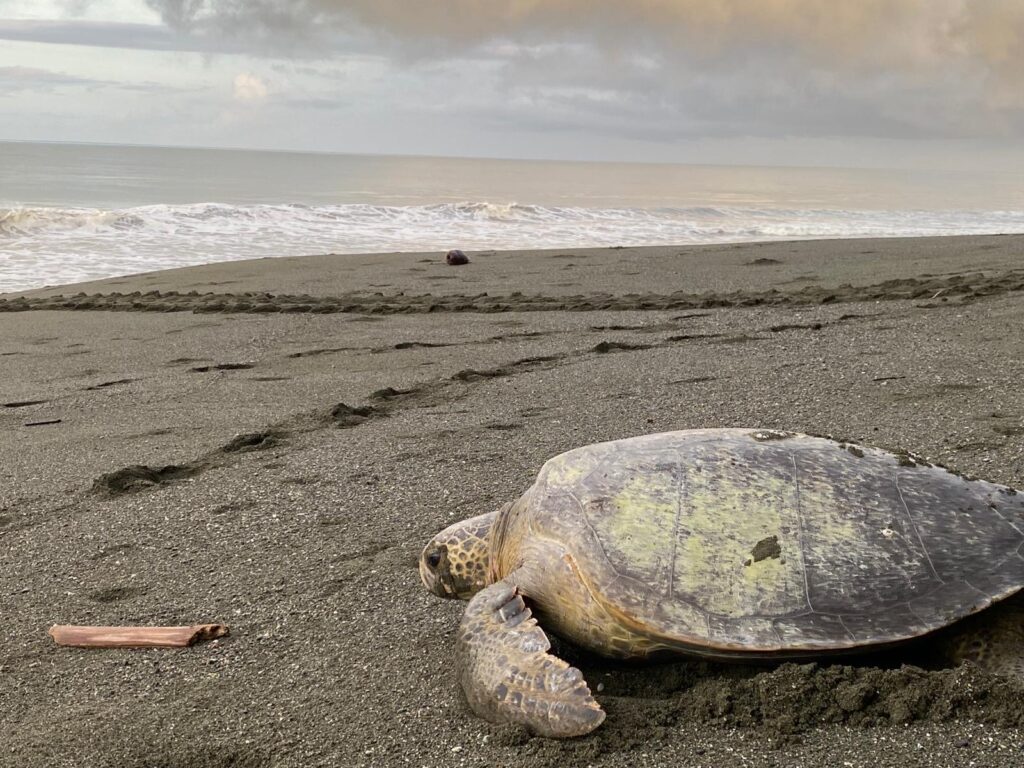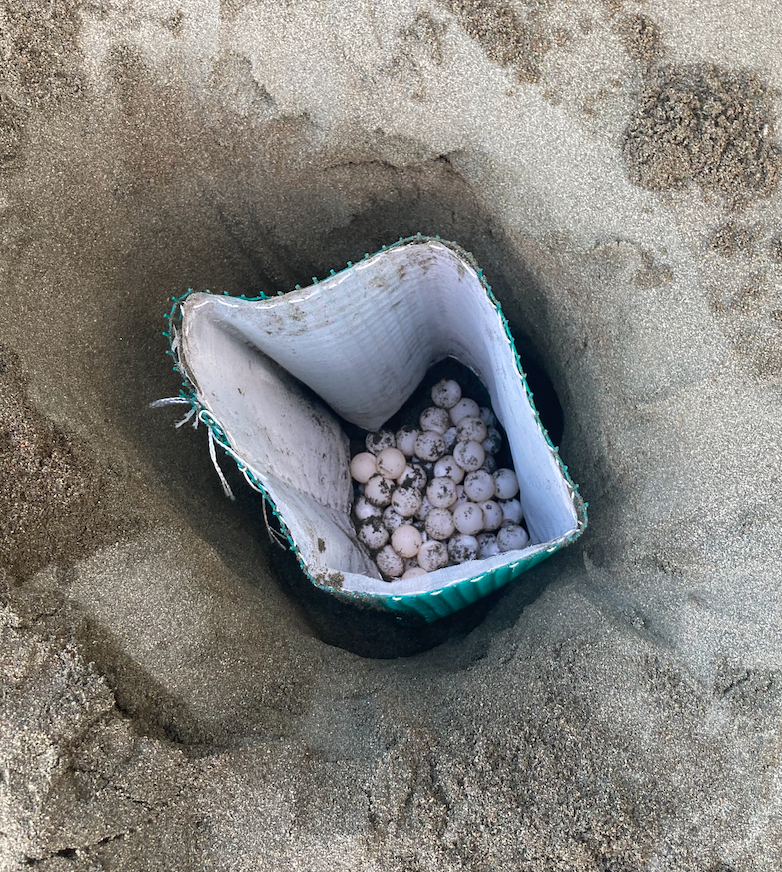Background
Aims
The protagonist of my thesis are Olive Ridley sea turtles, which are listed as Vulnerable by the IUCN. Their population is globally decreasing due to the amount of anthropogenic threats they face both in the sea and on land.

In Osa Peninsula (Costa Rica), concretely in Piro beach, the main issue is a high predation rate on Olive Ridley nests by coatis and raccoons. Flooding events, beach erosion and poaching are other threats that damage the nests on this beach.
Therefore, in 2021, the non-profit organization Osa Conservation decided to implement predator-excluder systems (PES) to prevent the nests from being predated. In the picture below you can see how this protective system looks like.
- Assessing the efficiency of predator-excluder systems in reducing predation rate of Olive Ridley nests in Piro beach
- Estimating which environmental factors affect the hatching success of the protected nests.

Do you think this is an efficient strategy to protect the Olive Ridley nests? That was what I wanted to know too.
Keep reading and let’s find out together!